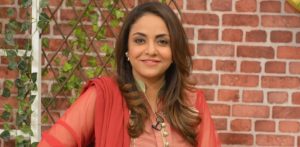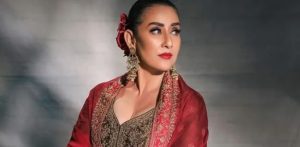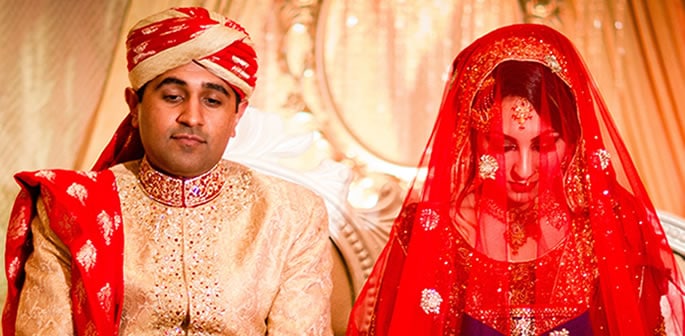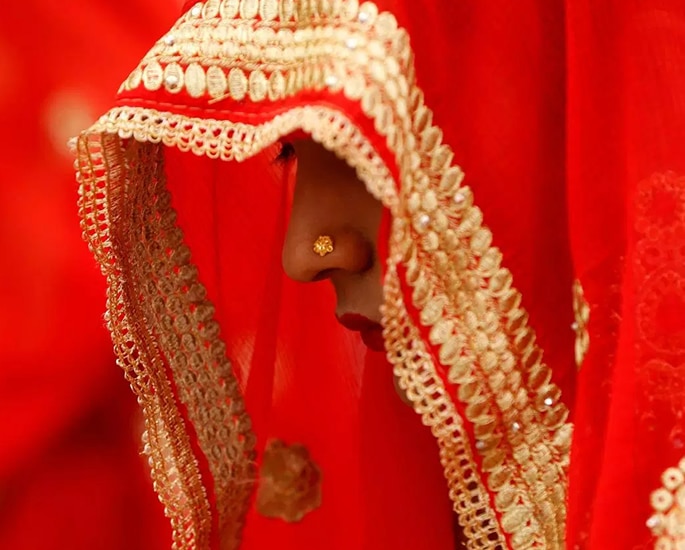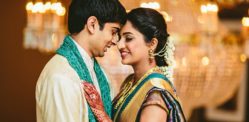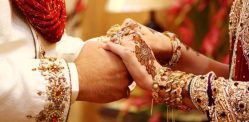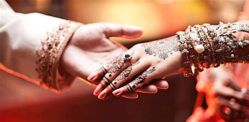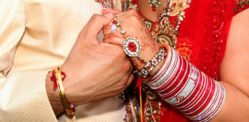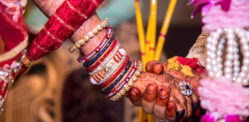If one is to get married, their baradari is also discussed
Within Pakistan, arranged marriages are arguably the most common form of marriage and are considered traditional in society.
In every part of the world, marriage is considered to be a milestone in one’s life. The concept of marriage has evolved since the last century worldwide.
Of the many traditions, Pakistani society follows it greatly encourages matrimonial and family values.
The idea of marriage has remained sacred for centuries. This idea is seen all over the world as well as in South Asia.
In ancient civilisations, marriages were considered sacred bonds for common families, as well as the aristocracies.
Kingdoms were forged into wealthy families and contributed as allies because of matrimonial connections.
Whether it was the Stuarts in the west or Mughals in the east, marriage was considered to strengthen strategic connections.
It must be noted that these marriages were mostly arranged. They needed to be approved and often arranged by the elders of the family.
In the 21st century, many Pakistani marriages are arranged. They are done so with the consent and approval of parents along with other family elders.
While there are love marriages, arranged marriages are the most common form. However, it is losing popularity among newer generations
There are many factors which reflect as to why some would have an arranged marriage and some not.
How is the concept of arranged marriage in Pakistan seen? DESIblitz puts the subject of such marriages into the spotlight to find out.
The Concept of Traditional Marriages
The idea of marriage is still considered to be obligatory and respectful even today. It is important to understand its gravity before going into the details of marriage.
For society, marriage has a lot of positives. It helps both a man and a woman to settle and helps signal maturity and prosperity.
In Pakistani society, it is also a sign that they have their own responsibilities that they must manage and it is not up to their parents.
In other words, they believe that it is time for their sons and daughters to live their own private life.
It is not just about the social obligation, which is very much expected from every single woman and man to be fulfilled, it is also about their heirs. This is particularly important for families who value inheritance.
Typically one’s son or daughter is at least engaged when they have passed the age of 18 in Pakistan.
By age 25, a Pakistani woman is expected to be married. For men, it is more relaxed, but for women, anything above 25 can be considered “way too old”.
If a man is not married and he is over 30, he is considered to be old. For women, it gets unbearably difficult as some people even pity unmarried women.
The idea of marriage goes beyond the lens of society. Its connection surpasses the bond of a man and a woman (same-sex marriages are illegal in Pakistan).
To understand the idea of Pakistani marriages, one must understand what baradari is. It roughly translates as brotherhood but also applies to clans and caste.
If one is to get married, their baradari is also discussed. This is to ensure that there is no confrontation between the two families.
This system is to ensure security to both the husband and wife. Should anything go wrong between them, the people of baradari participate to resolve the crisis.
Baradari also reflects many values, but these values come with prejudice, stereotypes and biases. The idea runs parallel to the caste system to an extent.
Many elders of the society look down upon the idea of having their daughter or son married in a different baradari.
According to them, it shows a family’s weakness for having sought another baradari.
The concept of marrying into another baradari seems progressive, however, many conservatives do not encourage such practises.
Furthermore, it even goes as far as pinpointing specific ethnicities. While people of different ethnic groups get married, it is sometimes met with prejudice and personal biases.
Arranged Marriages
Arranged marriages are a centuries-old tradition and it honours the seniority of elders and parents.
If anyone were to dispute the arranged marriage, they will be judged and scrutinised. It is almost as if one standing up to their parents is a hostile act.
For parents, it is a responsibility to have their children married exactly the way they choose. This responsibility was presented to them by previous generations.
Arranged marriages are still practised in the west amongst the South Asian diaspora but are evolving towards love marriages gradually, as individuals are finding their own partners.
In Pakistan, an arranged marriage is still a valuable privilege that parents hold for their sons and daughters.
If one chooses to marry someone of their choice, they must first have the approval of parents.
If they do not approve but the marriage still goes ahead, it will be considered an act of rebellion.
While love marriages do exist and are getting popular in Pakistan, arranged marriages are often looked up to be the ideal form of matrimonial settlement.
Why is the arranged marriage looked up as a better choice or given preference?
There are a number of reasons as to why arranged marriage is considered a priority in the eyes of Pakistani men and women.
Many Pakistani men and women believe in the intelligence of their parents. Though they may not always agree on everything, marriage is one thing that they leave to their parents.
An arranged marriage is considered to be a better choice because it is the norm within society.
Many married couples end up living with the husband’s parents. It is also likely that they will house their other sons and their families.
The oldest male member of the family heads the household affairs. In order to ensure stability, his sons get married to women that he thinks are suitable.
It is the same for the parents of young women who search for a suitable man.
That is especially true when all the family members live in one house. But not all families are joint.
If a couple can afford to live somewhere else then they are permitted to do so, but they are supposed to keep in contact with their families.
Arranged marriages allow families to intervene if things go wrong. A sense of security is there for both the wife and husband to guarantee emotional and economic stability.
In Pakistani society, if marriages are not arranged and families do not get along, it is likely that the marriage will not last.
An arranged marriage is preferred because it enables families to make sure that a marriage is sustained for a lifetime. The sustainably of a marriage is considered to be crucial.
The Expectations of an Arranged Marriage
There are a lot of expectations when it comes to arranged marriages in Pakistan.
Dowry and its Existance
One of the more infamous topics related to arranged marriages is dowry.The practice is patriarchal. It has been considered obligatory even before partition.
Of course, new generations are now condemning such acts, as they are related with materialism and greed. But then, arranged marriages are often not organised by those getting married.
Typically, the dowry is demanded by the groom’s side and they are only seen as a receiver and the beneficiary in this transaction.
It can be anything from gold, money, white goods, cars, property to even acres of land, all provided by the bride’s side.
In fact, there is no limit: the groom or his family can demand as much dowry as they like and the bride’s family is socially obliged to make their will come true.
The bride’s family is typically seen as inferior in arranged miarriages, compared to the groom’s side.
The quality and quantity of wealth put on dowrycan impact in helping the bride establish her role in the family.
Managing Differences in Relationships
The concept of arranged marriages has also questioned whether they are strong enough to prevent divorce, one of Pakistan’s biggest taboos.
Once the wedding date has been arranged, the matchmaker along with both sets of parents stay in touch.
As soon as the wedding is complete, the matchmaker takes his/her leave. Man and woman, once unknown to each other are now in wedlock.
All arranged marriages in Pakistan are different because they depend on the social traits of the husband and his wife and their backgrounds.
Commonly, wives are expected to be obedient and faithful to their husbands and in-laws, if living in an extended family. They should also raise the family.
Husbands are expected to be the main source of income for his family and also be faithful to their wives.
The process of an arranged marriage takes time to allow the couple to get to know each other.
It could start off with a thorough understanding or it could lead to problems for times to come.
Within more traditional families, once the arrangements have been made, the man and woman are not allowed to communicate before the marriage.
However, it is changing thanks to social media, which is making it possible to communicate before marriage. One can even find out about their spouse-to-be by checking out their social media profile.
Arranged marriages are often based on the idea that a social rite has to be fulfilled. But they are often about sustaining the institution of marriage itself.
The well-being of both husband and wife is at stake. They are socially and morally obliged to keep the honour of their respective families. In doing so, many things are often neglected.
A number of things can be affected such as mental or physical health.
It is important that the marriage is shaped according to social expectations, and not how one necessarily wants to live in a relationship.
Even though every arranged marriage is different, the role of the in-laws is crucial in setting the tone within the marriage in Pakistan.
Women in arranged marriages can often be expected to abide by whatever the in-laws expect without any resistance.
When in-laws intervene, it can affect the one or both members of the couple. In some cases, it can feel like they are being manipulated to take sides.
This can lead to tension between the two families as accusations are made and grudges are held.
This can result in divorce, unless the in-laws prevent it from happening.
Divorce remains taboo in Pakistani society and it is mostly under the control of the husband.
All the man has to say is Talaq (Divorce) three times to his wife and it is over. He may not even need a written statement.
As for the woman, the divorce must be requested in the form of Khula.
To ensure a relationship is sustained there must be an understanding on both sides. In arranged marriages, it is often the wives who have to compromise on just about everything.
In order to establish a better relationship, both the husband and wife need to cooperate, once married.
Marriages should be beyond social expectations but mostly in Pakistan, they become another cog in the machine of society which has its expectations.
Arranged marriages are not harmful in Pakistani society but responsibilities are required to sustain a healthy personal relationship.
That responsibility can only be fulfilled if both the husband and wife are ready to take on the challenges thrown at them of an arranged marriage.
A fancy wedding or one which is even simple can never guarantee a satisfying arranged marriage. Unlike love marriage, it needs that extra level of effort and patience.
It starts with the social upbringing of both the husband and wife, which can make all the difference in Pakistan.
Arranged marriages in Pakistan as a concept work but like every South Asian society, times are evolving and arranged marriages are changing as well.












